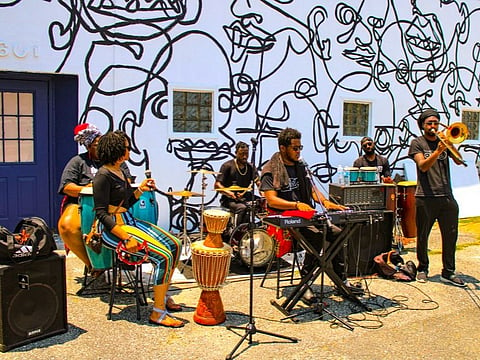Juneteenth: America’s second Independence Day — A celebration of freedom, resilience, and reckoning
How Juneteenth became a powerful symbol of freedom and racial justice in the US

Dubai: On June 19, communities across the United States gather not just to mark a date—but to honor a promise long overdue. Juneteenth, a blend of “June” and “nineteenth,” commemorates the day in 1865 when the final chapter of American slavery was forced shut—two and a half years after the Emancipation Proclamation.
It began in Galveston, Texas, when Union soldiers arrived and Maj. Gen. Gordon Granger issued General Order No. 3, announcing that all enslaved people were free. Over 250,000 African Americans in Texas heard the words of freedom—some for the first time. The reactions ranged from stunned silence to tears and jubilation. What followed was a celebration of liberation that grew into one of the oldest, most enduring African American holidays in the country.
From prayer meetings to parades: A living tradition
Juneteenth began in 1866 with hymns, prayers, and barbecue—joyful defiance in the face of centuries of bondage. By 1872, Black Texans had established Houston’s Emancipation Park, turning celebration into legacy.
As Black communities spread across the U.S., so did Juneteenth—each gathering rich with music, food, and purpose. Red foods like strawberry soda and barbecue aren’t just festive—they honor West African roots, symbolizing sacrifice, strength, and freedom earned through generations.
A day of joy, a call to justice
For decades, Juneteenth lived on quietly—until activism brought it roaring back. In 1968, Ralph Abernathy chose June 19 for a major civil rights rally, linking the holiday to calls for justice and equality.
After George Floyd’s murder in 2020, Juneteenth became a national symbol of both liberation and urgency. Major companies and communities embraced it, turning celebration into action.
Thanks to relentless advocates like Opal Lee, Juneteenth was made a federal holiday in 2021—a milestone in America’s long journey toward racial justice.
Why Juneteenth still matters
Today, Juneteenth is more than a commemoration of emancipation—it is a celebration of Black resilience, American history, and the ongoing journey toward justice. It’s a day to celebrate progress, but also to confront the nation’s original sin. It asks all Americans to reflect: How far have we come, and how much farther must we go?
Whether through parades, poetry, gospel, or the smell of grilled ribs on a summer breeze, Juneteenth pulses with the heartbeat of freedom—earned, delayed, but never denied.
Sign up for the Daily Briefing
Get the latest news and updates straight to your inbox




